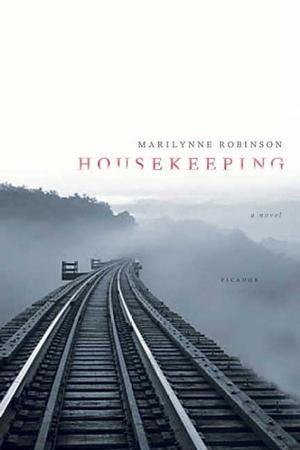TL;DR
Marilynne Robinson's "Housekeeping" explores the lives of sisters Ruth and Lucille as they navigate a transient existence in Fingerbone, a town haunted by loss, family disconnection, and the search for belonging.
What is Housekeeping about
"Housekeeping" tells the poignant story of Ruth and Lucille, two sisters raised in the isolated town of Fingerbone, Idaho. Their upbringing is marked by the successive care of relatives, from their capable grandmother to their eccentric aunt Sylvie. The narrative unfolds against the backdrop of a glacial lake, embodying themes of loss and the unsettling nature of transient life. Robinson draws upon personal experiences from her own childhood in Idaho, crafting a narrative that resonates with emotional depth and philosophical reflection on the fragility of human connections and the omnipresence of grief in their lives.
Housekeeping 8 Key Takeaways
The sisters' upbringing is marked by instability.
Ruth and Lucille's lives are defined by a series of caretakers, including their competent grandmother, comically inept great-aunts, and finally, the eccentric Sylvie. This unstable foundation sets the tone for their tumultuous journey into adulthood.
Fingerbone's haunting landscape plays a crucial role.
The town of Fingerbone is characterized by its glacial lake, which serves as a metaphor for the emotional depth and isolation of the characters' experiences. The lake's associations with death—both of their grandfather and mother—create a pervasive sense of loss.
Ruth's narrative perspective shapes the story.
As the narrator, Ruth provides a deeply reflective viewpoint, inviting readers into her inner world. Her observations reveal a profound understanding of the complexities of family ties and the impact of transient living.
Lucille's departure signifies a rejection of their unconventional life.
Lucille ultimately chooses a more stable existence, moving in with her home economics teacher and distancing herself from Ruth and Sylvie. This pivotal moment underscores the different paths the sisters take in coping with their circumstances.
The climax involves an act of rebellion.
In a final act of defiance against societal norms, Ruth and Sylvie set their family home ablaze before fleeing Fingerbone. This act symbolizes their rejection of the constraints imposed by the world around them.
Sylvie embodies both freedom and isolation.
As the girls' guardian, Sylvie represents a unique blend of autonomy and abandonment. Her eccentricity and detached existence challenge traditional family dynamics, highlighting the theme of unconventional connections.
The ending leaves a lingering sense of ambiguity.
The conclusion of the novel is open-ended as Ruth and Sylvie escape across the railway bridge, leaving readers to ponder the implications of their choices and the transient nature of their lives.
The narrative reflects deep philosophical musings.
Throughout the story, Robinson explores themes of existence, the nature of home, and the interplay between memory and identity, prompting readers to consider the larger human experience.
Housekeeping Videos
Housekeeping by Marilynne Robinson || SUMMARY - YouTube
Top Housekeeping Quotes
- "It's not an easy thing to be a mother, but it’s an even harder thing to be a daughter."
- "The world is full of things that are invisible, and they are all too true."
- "Home is a place you can never leave, even when you want to."
Who should read Housekeeping?
"Housekeeping" is ideal for readers who appreciate lyrical prose and deep character exploration. Fans of literary fiction will find Robinson's exploration of family dynamics, loss, and the quest for belonging both poignant and thought-provoking.
Housekeeping Best Reviews
- "Housekeeping is a stunning work of art that captures the transient nature of life and the complexity of familial bonds in a hauntingly beautiful manner." - The New York Times
- "Robinson's prose is lyrical and evocative, immersing readers in the emotional landscapes of her characters. A modern classic that resonates deeply." - The Guardian
People also liked these summaries
Housekeeping FAQs
Is "Housekeeping" based on Marilynne Robinson's life?
Yes, many elements of "Housekeeping" are inspired by Robinson's own upbringing in Sandpoint, Idaho, particularly the isolation and natural beauty of the setting that reflect her personal experiences.
What major themes are explored in "Housekeeping"?
Key themes include loss, family dynamics, the search for identity, and the nature of home. Robinson intricately weaves these themes into the fabric of the narrative, creating a rich tapestry of human experience.
What happens at the end of "Housekeeping"?
At the end of the novel, Ruth and Sylvie set their home on fire and flee Fingerbone, symbolizing their rejection of conventional living and their embrace of a more transient existence.
